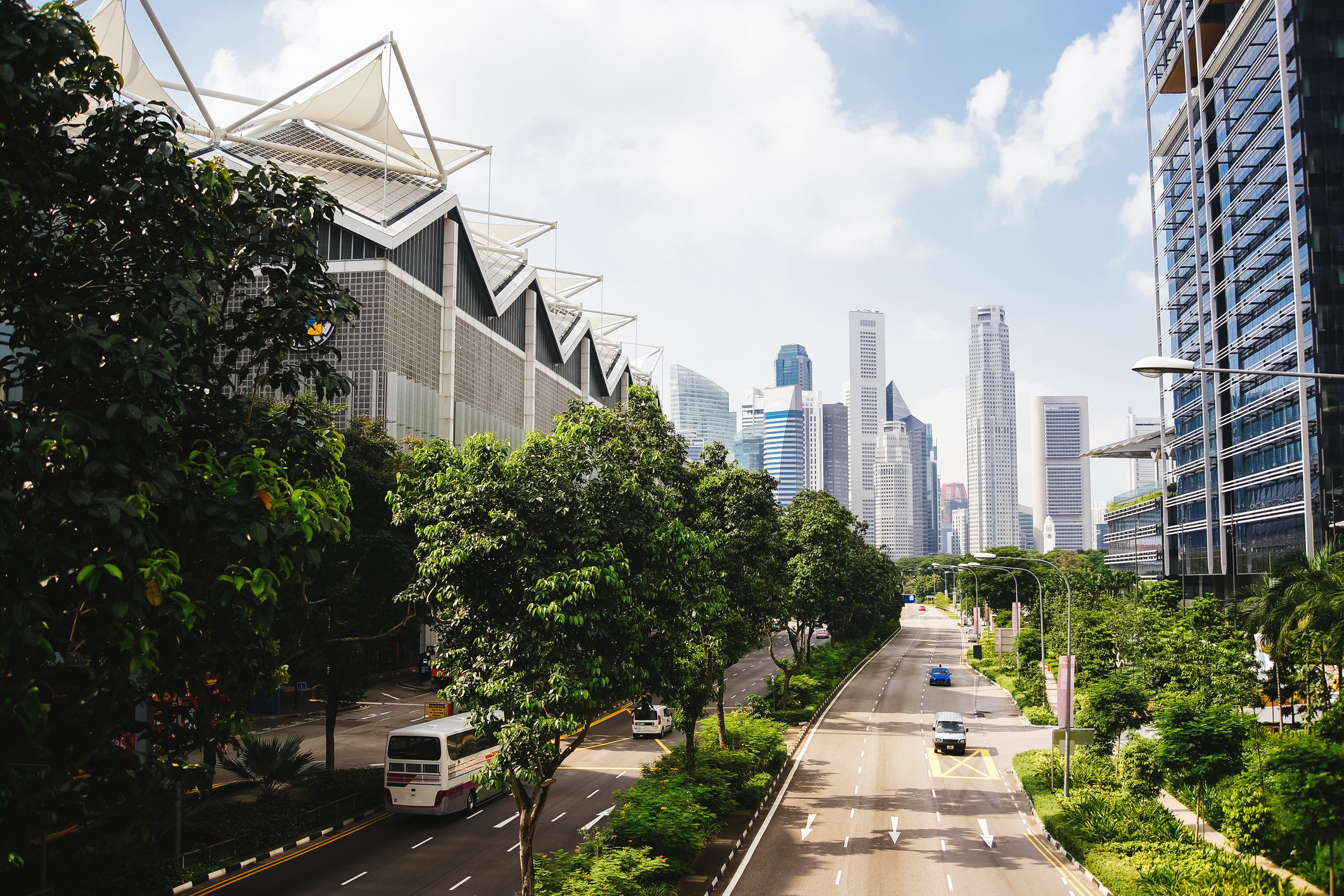Earth Day 2020: COVID-19's Blueprint for a Sustainable Future
Date:
25 April 2020By:
Venkatachalam AnbumozhiCategory:
OpinionsTopics:
COVID-19, Sustainable Development GoalsShare Article:
Print Article:
By Dr Venkatachalam Anbumozhi, Senior Energy Economist: Wednesday marked the 50th anniversary of Earth Day, which was strikingly different from the previous years. Countries across the planet are grappling with an unprecedented situation in which a seemingly innocuous viral illness turned into a global pandemic in less than 90 days. The novel coronavirus has infected more than 2.7 million people in more than 200 countries, claimed over 190,000 lives and brought most economic activities to a standstill.
The pandemic has led to disruptions in air travel, quarantines, stay-at-home orders, temporary business closures and social distancing. Life under coronavirus containment has become the new normal.
This new normal has resulted in short-term environmental improvements, including a significant enhancement in air quality in cities, decreased energy use and a reduction in greenhouse gas emissions.
The spread of COVID-19 has also increased public awareness of personal hygiene, the importance of public health and the consequences of a lack of resilience and preparedness to deal with a pandemic shock.
Climate change, water pollution and drivers of biodiversity loss such as deforestation and illegal wildlife trade may increase the risk of further pandemics, such as vector-borne diseases. One new infectious disease emerges in humans every four months, and 75 percent of these emerging diseases come from animals. A healthy ecosystem helps to protect us from these diseases.
Biological diversity makes it difficult for pathogens to spread rapidly. It is estimated that around 1 million animal and plant species are now threatened with extinction. To fight climate change and biodiversity loss, turning to sustainable models will help not just our planet but human health as well.
Earth Day 2020 comes at a tumultuous time. The immediate priority for governments is to protect people by limiting the spread of the coronavirus and by facilitating economic recovery to bring tangible social benefits to individuals.
Prime Minister Shinzo Abe announced an economic package totaling around ¥108 trillion to assist hard-hit sectors, self-employed individuals with wage subsidies, additional spending on health care, tax exemptions, interest rate cuts, etc.
At the same time, the window of opportunity to take strong action on the 2030 Sustainable Development Agenda is closing fast. When the coronavirus emergency recedes and recovery starts, the effects of governments’ stimulus packages will need to be aligned to “build back better,” to capture opportunities for leap-frogging to green investments, such as renewable energy, smart housing, green public procurement and public transport — all guided by the principles, indicators and standards for a sustainable society.
Sustainable societies are inherently inclusive and resilient. From that perspective, three imperatives are necessary while governments are designing short-term, sector-specific and macro-economic policy responses to the coronavirus emergency and recovery.
First, resilience is essential. It has been heartbreaking to witness people risk their lives due to shortages of critical medical and safety equipment, including masks worth less than a dollar. This lack of planning and preparation for the outbreak has starkly demonstrated the importance of resilience: the ability of human systems to anticipate, cope and adapt. Resilience is also critical for countries and communities to respond to climate change, where further temperature increases are certain. Policymakers must succeed in planning for and adapting to climate change or risk further calamities.
Second, stimulus packages must be sustainable. Governments around the region are racing to implement economic stimulus and support packages to keep individuals, businesses and economies afloat. While supporting their urgent implementation, policymakers must ensure that these measures pave the way to a more sustainable economy and don’t lock us further into a high-carbon future. Periods of high unemployment and low interest rates are the right time for new low-carbon investments and high-quality infrastructure, including the kind required to support the transition to clean energy, sustainable production and consumption as well as a circular economy.
Third, inequality needs to be addressed. The coronavirus pandemic is an unprecedented global shock that magnifies the impact of inequality, hitting the poor, women and the elderly the hardest. Front-line workers in the medical, food and hospitality industries, many of whom are women, are among the most exposed to the virus and the least able to absorb its financial impacts. And the hardest hit will be poor people in the informal economy, where already-struggling workers, including waste pickers, sewer cleaners and construction laborers will not have the benefit of social safety nets and stimulus packages. Policymakers must immediately help such communities help flatten the pandemic curve. In the longer term they must redouble efforts to foster sustainable economic systems, including fair trade and socially inclusive investments.
All three of these actions are closely connected to the Paris Climate Agreement, the Sustainable Development Goals and Group of 20 pledges. In addition, their scale and complexity demand that countries, corporations and communities continue to act together to achieve the future we want.
We share a single planet, drink from the same water and breathe the same air. If there was ever a time in which humanity should finally recognize that we belong to one connected family on Earth, this should be it.
This opinion piece was written by ERIA's Senior Energy Economist, Dr Venkatachalam Anbumozhi, and has been published in The Japan Post and The ASEAN Post. Click here to subscribe to the monthly newsletter.
Earth Day 2020: COVID-19's Blueprint for a Sustainable Future








